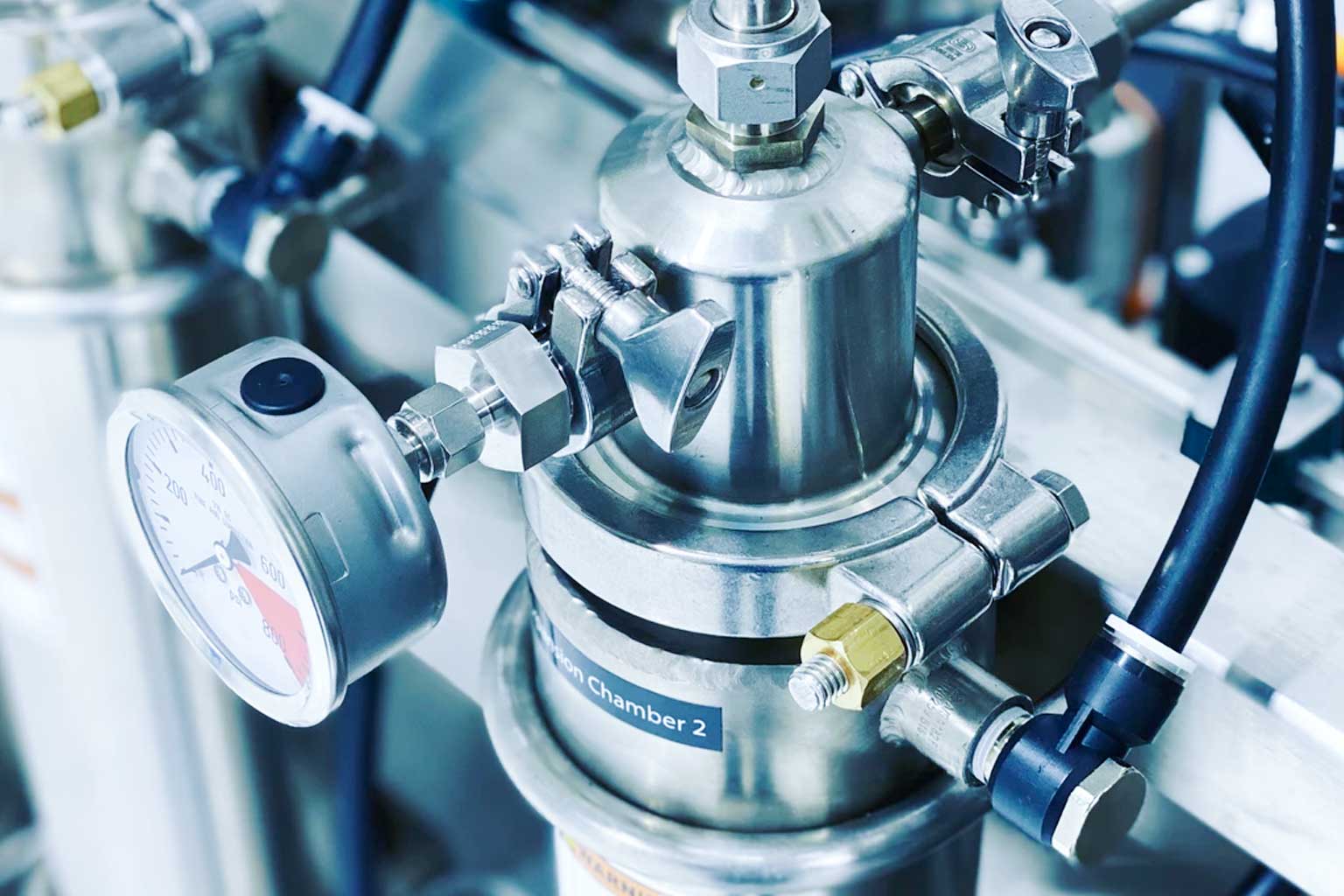When you think of cannabis, tetrahydrocannabinol (THC) may be the first cannabinoid to come to mind. But there’s another popular cannabinoid to keep on your radar: cannabidiol (CBD).
The hemp plant (Cannabis Sativa) contains more than 140 chemical substances, among them cannabinoids, terpenes, and flavonoids. The two best known of these substances are of course THC (tetrahydrocannabinol) and CBD (cannabidiol).
While THC is the psychoactive chemical responsible for producing a “cannabis high”, non-psychoactive CBD has in recent times made headlines due to its efficacy in treating, preventing, and possibly even curing certain health conditions such as anxiety, insomnia, and epilepsy.
There also is increasing evidence from clinical studies that show that CBD eases pain and discomfort, for instance in advanced cancer patients. It is therefore no wonder that CBD is gathering increasingly more users, especially in the background that many countries have begun relaxing their legislations against cannabis.
We’ve got you covered with this quick and easy guide to the differences between each form of CBD.
Getting to know cannabinoids and terpenes
The hemp plant contains both cannabinoids and terpenes
Cannabinoids are plant compounds that can be found in the hemp plant. There are over 100 different cannabinoids in the world, two of which include CBD and THC. These cannabinoids interact with your body’s endocannabinoid system by targeting specific receptor sites that accept cannabinoids. Once a cannabinoid has reached a receptor site, it can then work with your body to influence appetite, pain sensation, memory, mood, and more.
CBD, or cannabidiol, is known for its calming and sedative effects. THC, or tetrahydrocannabinol, has psychoactive effects linked to the well-documented high. Other cannabinoids such as CBN (cannabinol), CBC (cannabichromene), and CBG (cannabigerol) exist that interact differently with your body’s endocannabinoid system.
When cannabinoids are consumed together, a phenomenon known as the entourage effect will take place. The entourage effect proposes that combining cannabinoids such as CBG, CBN, THC, and CBD creates a stronger impact than any single cannabinoid can have on its own. The entourage effect can take place as a result of consuming any number of cannabinoids — not just CBD and THC.
Other organic compounds called terpenes and terpenoids will also influence the entourage effect. These compounds are found in many kinds of plants and are primary components in essential oils. They are also responsible for the smell of cannabis plants. Like cannabinoids, each individual terpene is associated with a unique effect. Types of terpenes commonly found in the hemp plant include limonene, humulene, myrcene, and ocimene.
Hemp extract and cannabis extract
It’s important that we make the distinction between hemp extracts and cannabis extracts (marijuana) or Hemp extract vs CBD. Hemp extracts containing CBD are sourced from the hemp plant and may contain trace amounts of THC or are instead THC free. Cannabis extracts, meanwhile, will contain some level of THC content and therefore aren’t THC free. According to the 2018 Farm Bill, any CBD product derived from hemp must contain less than 0.3% THC or it will instead be classified as a cannabis product under law.
What is CBD isolate?
CBD isolate is pure CBD that contains no THC. Yes! It has been stripped of all other active ingredients and cannabinoids – what remains is a pure CBD molecule, what’s left behind is a pure crystalline substance that doesn’t contain THC, terpenes, flavonoids, or other cannabis plant compounds.. But don’t be fooled by the word ‘isolate’: there’s a whole host of health and wellness benefits to CBD isolate products.
CBD isolate benefits
CBD isolate is the purest form of CBD. It may be a suitable product for first-time CBD users who wish to experiment with the potential health benefits, without the interference of other cannabis compounds, which may alter the effects. CBD isolate is also refined, so it has no discernible taste or odor.
A 2015 animal study concludes that while CBD isolate may offer certain health benefits, the effects may be less notable than when using a full-spectrum CBD product. The research also indicates that CBD isolate’s effects against pain and inflammation may only occur at a specific dose. This is in contrast to full-spectrum products, where effects increase as the dosage does.
People who use CBD isolate find it particularly beneficial for its calming properties and therapeutic potential. We already know that it works with our body’s endocannabinoid system to activate receptors in the brain and help restore homeostasis – the natural balance of the body – which includes our mood, body temperature, water content, and more. But it’s also associated with other long-term health effects: multiple studies have shown that CBD could have anti-inflammatory properties, relieve chronic pain, help with muscle repair and help promote a good night’s sleep.
Since CBD isolate is pure, there’s no need to worry about any THC entering your system after consumption and you won’t fail a workplace drug test. It’s totally legal and has zero high-inducing effects, so you’ll be able to go about your day as normal – just a little bit more relaxed.
For this reason, people who wish to take high doses of CBD may prefer a CBD isolate. This is not necessarily a negative quality of CBD isolate. Some people may prefer a product without THC, or they might be sensitive to this substance.
As there is no THC, this substance should not show up in any drug tests. However, people should be careful when purchasing CBD products. Items with a THC-free label may still contain traces of the compound. Thoroughly reading the packaging, labels, and third-party test results will help ensure a person gets all the information they need to avoid adverse effects.
CBD Isolate Drawbacks
While it’s hard to believe there are any drawbacks to pure CBD, isolating it from other cannabinoids and compounds does mean that you’ll miss out on the potential benefits of THC, terpenes, and flavonoids, as well as their famous ‘entourage effect’ – a synergistic interaction that enhances the individual effect of each compound involved.
Production of CBD Isolate
Just like with other CBD products (for example CBD oil, CBD extract or CBD distillate), the cannabidiol contained in CBD isolate is obtained through a technology known as supercritical CO2 extraction.
As its name implies, carbon dioxide (CO2) is used for target-specific extraction of the cannabidiol content in the hemp plant. Supercritical CO2 extraction equipment is normally only used in a lab setting to obtain small quantities of the targeted substance.
What is full-spectrum CBD?
Full-spectrum CBD contains all the naturally occurring cannabis plant compounds, sometimes including small traces of THC (usually less than 0.03%), essential oils, flavonoids, terpenes, and other additional cannabinoids. Research suggests that with some of these additional cannabinoids comes the opportunity for wider health benefits. At times these ingredients may simply be labeled as “hemp oil extract,” but this term is somewhat ambiguous because you don’t know how much CBD you’re really getting. For this reason, it’s important that you ensure your full spectrum CBD oil is tested by a lab to help you understand what’s in it.
But unlike cannabis, full-spectrum CBD contains only trace amounts of THC (less than 0.3 percent), which isn’t enough to produce psychoactive effects.
Full-Spectrum CBD: The Benefits
Full-spectrum cbd oil comes with that all-inclusive ‘entourage effect’ whereby you might benefit from the full range of effects that each compound brings to the party. Some of the reported health benefits include pain relief, anti-seizure, nutrient boost, nausea relief, muscle spasm relief, reduced anxiety and anti-inflammatory properties.
- anxiety
- pain
- inflammation
- seizures
- cancer
- fungal infections
- The same review also concludes that CBD may help lessen unwanted THC effects, like hunger, anxiety, and sedation.
Research from 2018 found that some of the terpenes and flavonoids found in cannabis may reduce inflammation and offer neuroprotective effects.
Full-Spectrum CBD: The Drawbacks
Full-spectrum CBD oil is minimally refined and usually contains traces of THC, that may sound like a small amount, but if you take a large enough amount of a potent enough product, you could be consuming enough to cause an impairing effect. It’s also possible that the THC could show up on a drug test.
CBD Isolate vs Full-Spectrum
Full-Plant extracts typically contain a carefully measured amount of the cannabis plant’s most prominent cannabinoid, THC, although usually not in a large enough amount to have any psychological effects. In many countries, a certain percentage of THC is illegal, so it is vital to know the amount of this cannabinoid when manufacturing products that contain full-spectrum CBD. When present together, CBD and its cannabinoid colleagues, as well as terpenes, produce what is known as an entourage effect. The synergistic relationship between cannabinoids and terpenes has been shown to increase the healing properties of each.
A study published by the Lautenberg Center for Immunology and Cancer Research, which aimed its focus on the effectiveness of CBD isolate compared to full-plant extract, supported this concept, stating in its summary that “in all of the tests, the isolated CBD was ineffective both before and after a certain dosage, while the effectiveness of the full-spectrum solution continued to increase as higher doses were administered. The results all indicate that CBD is only effective against swelling and pain at a certain dose, and that cannabis solution containing a full range of cannabinoids will continue to provide corresponding effects as the dosage is increased.”
Given the results of this study, it would seem to confirm that full-spectrum extract is preferable over CBD to isolate for most CBD users, but CBD isolate is still frequently used and believed by some to be more effective than full-plant extract. This belief is led by the idea that CBD is the only medically sought-after cannabinoid in the cannabis plant, aside from THC. Many CBD isolate users are under the impression that by consuming only the CBD cannabinoid and no terpenes or any other “unnecessary” components of the plant, they are getting a more powerful or effective dose of CBD. When vaping a CBD extract, which as stated previously, is considered to be the most efficient and quick-acting method of administering CBD, isolate users may feel that they are taking the most efficient route to CBD consumption. While this method might be efficient, the lack of entourage effect means the benefits are reduced when compared to full-spectrum CBD consumption.
However, CBD isolate does have something to offer CBD users that full-spectrum extracts do not. The fact that full-spectrum extracts invariably contain low levels of THC means that some users prefer to play it safe and stick to pure CBD by itself, out of fear of failing a drug test or experiencing a form of “high”, although both of these occurrences have been found to be fairly unlikely.
THC is one of the cannabinoids involved in the “entourage effect” stated earlier so it is ideal for inclusion in CBD supplementation. A recent article on full-spectrum CBD demonstrates the importance of THC inclusion by stating, “In hemp, THC is a minor constituent and appears only in trace amounts under 0.3% by dry weight, as required by the U.S. government for hemp products. THC mimics the action of anandamide, a neurotransmitter naturally produced in the human body, and binds to CB1 receptors in the endocannabinoid system found mostly in the brain. The extremely low levels of THC in hemp make hemp oil non-psychoactive and safe for all ages to use.”
The wide range of benefits contained in full-spectrum CBD extracts means some CBD merchants have either ceased to sell or scaled down the promotion of CBD isolate, in comparison to the whole-plant extract variety. Companies and individuals who extract CBD themselves are realising that cannabis has more to offer medicinally than just CBD or THC and that there is little to no reason to not include all that this “super-plant” has to offer in the extraction process.

